EDITOR’S NOTE: Four members of our current cohort are international students, coming to the program from around the globe, attracted to the program’s perspective on the role business can play in addressing global challenges. Esteban Echeverria, Noelle Nyirenda, Bhargavi Montravadi, and Alexa Steiner sat down recently to talk about coming to Vermont and settling into the challenges of The Sustainable Innovation MBA program. Their bios (along with the entire Class of 2019) can be found here.
The Sustainable Innovation MBA program has been quite the adventure so far. Between hours of class work, group work, readings, guest speakers, and more, the first few months of the program have challenged and inspired us. For a few of us in the 2019 cohort, the experience leading up to the first day of the orientation was an adventure in itself.
Esteban – Costa Rica
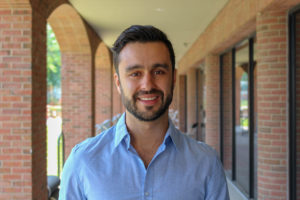 “Coming from Costa Rica to this program is one of the best decisions I have ever made. I never thought I was going to encounter such a developed and community-conscious city in Burlington. Its citizens, apart from being some of the nicest people I have known, are very aware of social and environmental issues, as well as politically active and full of insights that will make you think about the status quo. From the community-owned grocery stores, to the amazing Lake Champlain, this city has what it needs to be the best place as the home of The Sustainable Innovation MBA.
“Coming from Costa Rica to this program is one of the best decisions I have ever made. I never thought I was going to encounter such a developed and community-conscious city in Burlington. Its citizens, apart from being some of the nicest people I have known, are very aware of social and environmental issues, as well as politically active and full of insights that will make you think about the status quo. From the community-owned grocery stores, to the amazing Lake Champlain, this city has what it needs to be the best place as the home of The Sustainable Innovation MBA.
“The MBA program itself dives in many of the world challenges we currently face, and most of its solutions lie in empowering entrepreneurial projects in developing countries. I recommend this experience to any international student interested in contributing to the economic growth, as well as the environmental and social prosperity, of their countries. The networking and potential connections you will find at this program will be beneficial to your future projects and endeavors.”
Noelle – Zambia
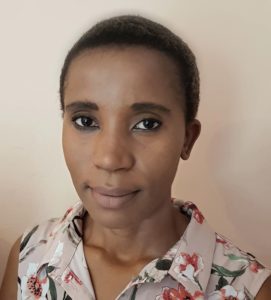 “Moving to Vermont for the program was not without its challenges, and they included but were not limited to: finding accommodation from another continent, completing a visa application in three weeks and moving two chunky pieces of luggage between four flights. But the most difficult part about the whole move was explaining to friends and family where Vermont was, and what it was (there are still some skeptics who aren’t convinced it is an actual state).
“Moving to Vermont for the program was not without its challenges, and they included but were not limited to: finding accommodation from another continent, completing a visa application in three weeks and moving two chunky pieces of luggage between four flights. But the most difficult part about the whole move was explaining to friends and family where Vermont was, and what it was (there are still some skeptics who aren’t convinced it is an actual state).
“It was easier to explain the existence of the state to some more than others. For instance my father, being an avid political news reader, was aware that the senator was Bernie Sanders, who was also a candidate for the Democratic nomination for president and that the state has some of the more progressive policies when it came to the environment. He was quite proud that his daughter was going back to engineering school to find a way to solve global warming. Unfortunately, I had to explain that I was actually going to business school for an MBA. He is now rather heartbroken that I am not getting a Ph.D. Here I should note that African parents are always up-selling their children when it comes to education.
“Then there was a friend from high school who said she had heard of Vermont, which was a great relief, until she explained what she meant. “It was mentioned in an episode of Scandal,” said she, “Vermont is in Canada! It’s where scandalous American politicians retire to.” I was confident enough about Vermont’s membership in the United States of America to correct the former statement, however, I could offer no opinion on the accuracy of the latter.”
Bhargavi – India
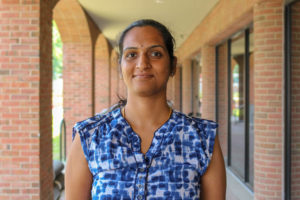 “Fortunately, I didn’t have the problem of explaining where Vermont is to my family and friends like Noelle, because I was already living in Vermont. But, when I was moving from Boston, I received lot of questions on where Vermont was so, I took the easy route and told them that it’s near Boston. So now they must be thinking that Vermont is somewhere in Massachusetts close to Boston.
“Fortunately, I didn’t have the problem of explaining where Vermont is to my family and friends like Noelle, because I was already living in Vermont. But, when I was moving from Boston, I received lot of questions on where Vermont was so, I took the easy route and told them that it’s near Boston. So now they must be thinking that Vermont is somewhere in Massachusetts close to Boston.
“I always dreamed of doing an MBA. But whenever I tried to pursue my dream, an enticing job offer drifted me away. After my engineering, a job offer in Infosys and in Boston, it was the job offer at Deloitte. Not sure if I chose the program or the program chose me; I am elated to be in The Sustainable Innovation MBA program and enjoying every moment of it. ‘The amalgamation of my career initiative MBA with my passion of integrating sustainability into the businesses/daily life was a dream come true’- This is a statement from my Statement Of Purpose, a part of the application process. As any middle-class Indian family, mine was delighted and excited that I will be doing MBA in the USA. Still, I was pretty apprehensive about sitting in an American classroom, but after Module 1, It felt like I knew Kalkin 110* from my previous life.
“My initial thoughts were that the American education system is so different to Indian education system. Yes! They are different, but what brings us together is the quest for knowledge, care for people, and responsibility towards planet. There are odds of living in a different continent – 8,000 miles away from homeland across 2 oceans and keeping fingers crossed, checking Twitter for new immigration policies. But, the global potential for this program, especially its importance in developing countries, makes it appealing to any world citizen.”
Alexa – Canada
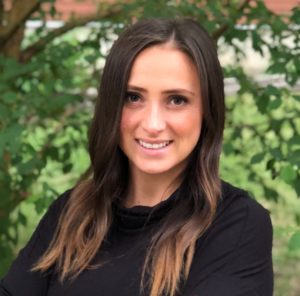 “Here are my Top 5 things to know as a Canadian studying in Burlington:
“Here are my Top 5 things to know as a Canadian studying in Burlington:
“One. The school helps so much with the process of getting a student visa.
“Two. It’s hard to find a place to live in Burlington — start your search early!
“Three. Be prepared for your American classmates to make fun of your accent and your hockey team.
“Four. Try to tame your politeness — sometimes it’s okay to just talk without raising your hand.
“Five. Everyone in Vermont is friendly and warm — even if you’re far away, it still feels a lot like home.”
Esteban, Noelle, Bhargavi, and Alexa: If you are a prospective international student reading this blog post, please reach out to us. We would love to discuss our experiences so far, what it took to get here and why choosing UVM and The Sustainable Innovation MBA program is a great decision.
 With the increasing gap in the distribution of economic wealth in the United State along with the increased cost of living, the poverty line is growing, which is putting the former lower middle-class families in extreme risk of becoming impoverished and economically unstable. If intervention is not taken soon, then there is a huge likelihood that the homeless population in America will increase.
With the increasing gap in the distribution of economic wealth in the United State along with the increased cost of living, the poverty line is growing, which is putting the former lower middle-class families in extreme risk of becoming impoverished and economically unstable. If intervention is not taken soon, then there is a huge likelihood that the homeless population in America will increase.
 “
“ “Moving to Vermont for the program was not without its challenges, and they included but were not limited to: finding accommodation from another continent, completing a visa application in three weeks and moving two chunky pieces of luggage between four flights. But the most difficult part about the whole move was explaining to friends and family where
“Moving to Vermont for the program was not without its challenges, and they included but were not limited to: finding accommodation from another continent, completing a visa application in three weeks and moving two chunky pieces of luggage between four flights. But the most difficult part about the whole move was explaining to friends and family where  “Fortunately, I didn’t have the problem of explaining where Vermont is to my family and friends like Noelle, because I was already living in Vermont. But, when I was moving from Boston, I received lot of questions on where
“Fortunately, I didn’t have the problem of explaining where Vermont is to my family and friends like Noelle, because I was already living in Vermont. But, when I was moving from Boston, I received lot of questions on where  “Here are my Top 5 things to know as a Canadian studying in Burlington:
“Here are my Top 5 things to know as a Canadian studying in Burlington: It’s never been easier to order goods, food/groceries and socialize without ever leaving one’s home. As a society, we are moving more towards a world where we don’t have to do anything or go anywhere that we do not want to. Yet, according to the
It’s never been easier to order goods, food/groceries and socialize without ever leaving one’s home. As a society, we are moving more towards a world where we don’t have to do anything or go anywhere that we do not want to. Yet, according to the 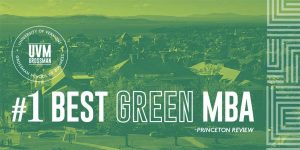 This is a significant recognition for the program and
This is a significant recognition for the program and 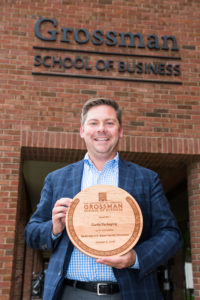
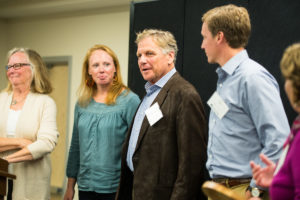

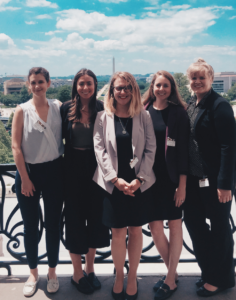 Over the course of three days, the students participated in numerous educational sessions, learning about CARE’s impact and outlining the policy and political goals for the year. This year’s theme, “Your Voice, A World of Change” lifts up and celebrates the advocates whose voices help CARE continue to be the leader in creating positive change for women and girls on the global stage. The conference kicked off with prominent figures and speakers in the foreign aid space including Sally Yates, former Acting Attorney General; Helene D. Gayle; Senator Amy Klobuchar (D-MN), and multiple CARE and CARE Action! Voices.
Over the course of three days, the students participated in numerous educational sessions, learning about CARE’s impact and outlining the policy and political goals for the year. This year’s theme, “Your Voice, A World of Change” lifts up and celebrates the advocates whose voices help CARE continue to be the leader in creating positive change for women and girls on the global stage. The conference kicked off with prominent figures and speakers in the foreign aid space including Sally Yates, former Acting Attorney General; Helene D. Gayle; Senator Amy Klobuchar (D-MN), and multiple CARE and CARE Action! Voices.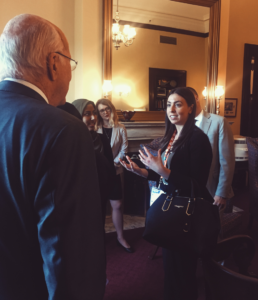 Prepared with discussion points for the advocacy day on Capitol Hill, The Sustainable Innovation MBA students set out to meet with the offices of Vermont’s Congressional delegation: Representative Peter Welch, Senator Bernie Sanders and Senator Patrick Leahy. In the meetings with the Congressional offices, the students advocated for co-sponsorship of the International Violence Against Women’s Act, a bipartisan bill to ensure that gender-based violence is a top U.S. foreign policy priority. This issue is an important priority because an estimated one in three women will face physical, mental or sexual abuse in their lifetimes. Violence against women has an immeasurable impact on women and girls, their families and their communities. IVAWA elevates the importance of these issues and places them at the center of U.S. foreign diplomacy.
Prepared with discussion points for the advocacy day on Capitol Hill, The Sustainable Innovation MBA students set out to meet with the offices of Vermont’s Congressional delegation: Representative Peter Welch, Senator Bernie Sanders and Senator Patrick Leahy. In the meetings with the Congressional offices, the students advocated for co-sponsorship of the International Violence Against Women’s Act, a bipartisan bill to ensure that gender-based violence is a top U.S. foreign policy priority. This issue is an important priority because an estimated one in three women will face physical, mental or sexual abuse in their lifetimes. Violence against women has an immeasurable impact on women and girls, their families and their communities. IVAWA elevates the importance of these issues and places them at the center of U.S. foreign diplomacy.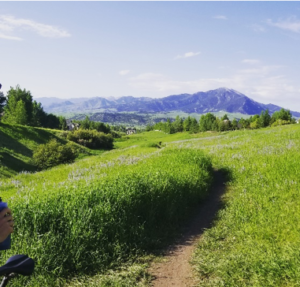 Since moving to the little city of Bozeman, Montana last fall, my increased focus on rock climbing, mountain biking (photo, left), canoeing and backpacking has brought me closer to the outdoor recreation community, a community that is at the heart of this place and many others like it. That said, I’ve felt strangely further away from my conservation roots. I devoured the article, nodding, admittedly a bit self-righteously, through all 3,000 words. Yes, yes! This is what I have been saying. Outdoor recreation does not solely predict one’s environmental attitudes! While the outdoor recreation industry is willing to make increasingly political statements about protecting our wild places, they’re yet to show they are willing to pay for that protection! And my sustainable business training rushed back: we don’t need to settle for trade-offs! Businesses can do well by doing good.
Since moving to the little city of Bozeman, Montana last fall, my increased focus on rock climbing, mountain biking (photo, left), canoeing and backpacking has brought me closer to the outdoor recreation community, a community that is at the heart of this place and many others like it. That said, I’ve felt strangely further away from my conservation roots. I devoured the article, nodding, admittedly a bit self-righteously, through all 3,000 words. Yes, yes! This is what I have been saying. Outdoor recreation does not solely predict one’s environmental attitudes! While the outdoor recreation industry is willing to make increasingly political statements about protecting our wild places, they’re yet to show they are willing to pay for that protection! And my sustainable business training rushed back: we don’t need to settle for trade-offs! Businesses can do well by doing good.